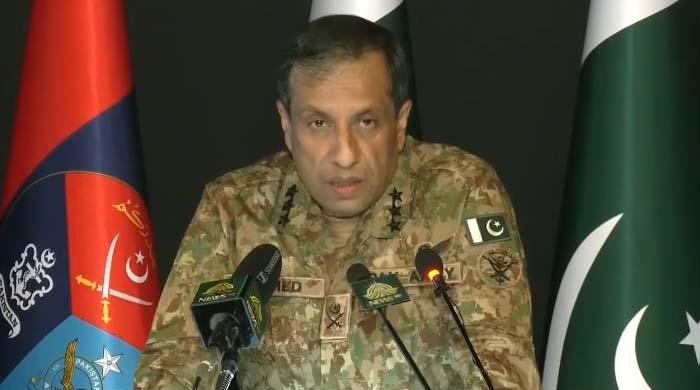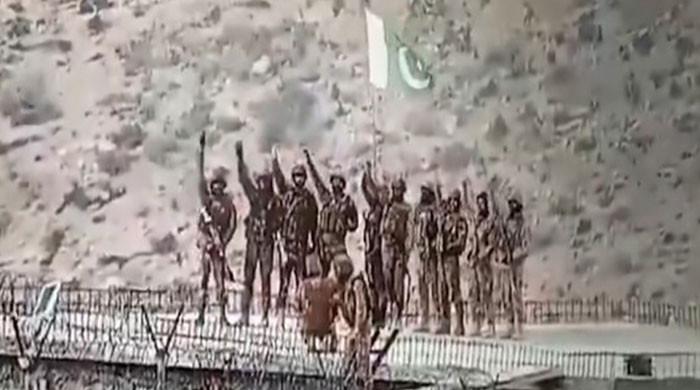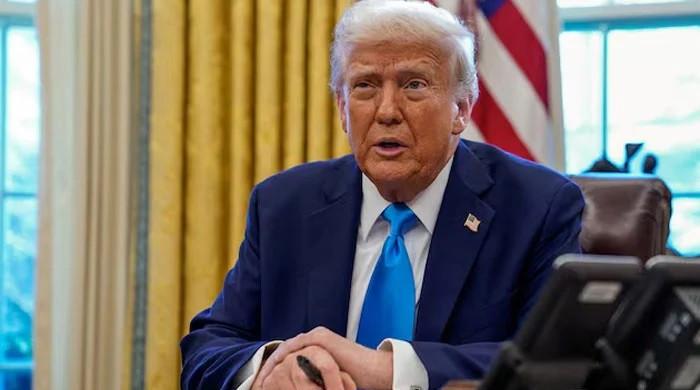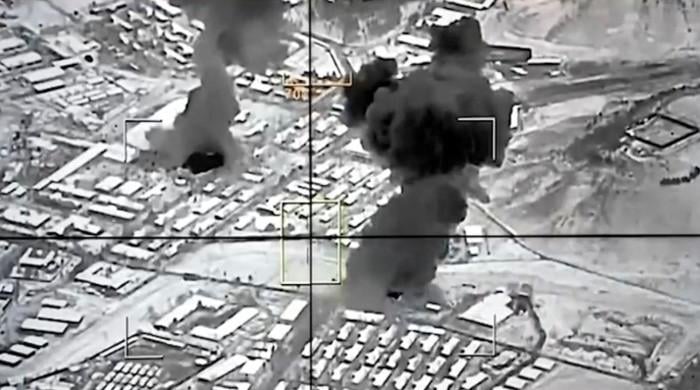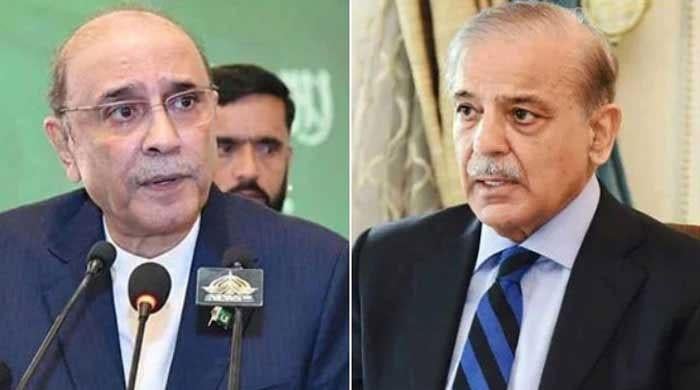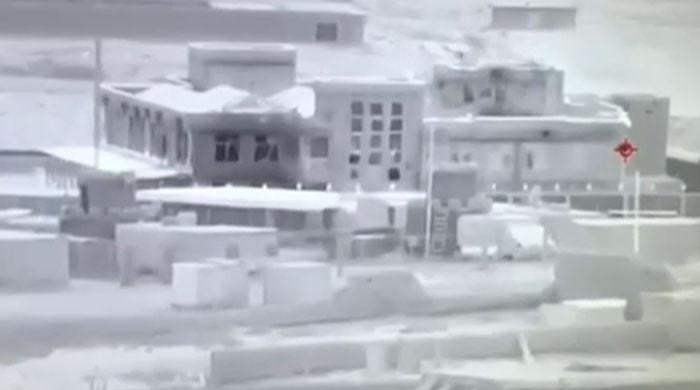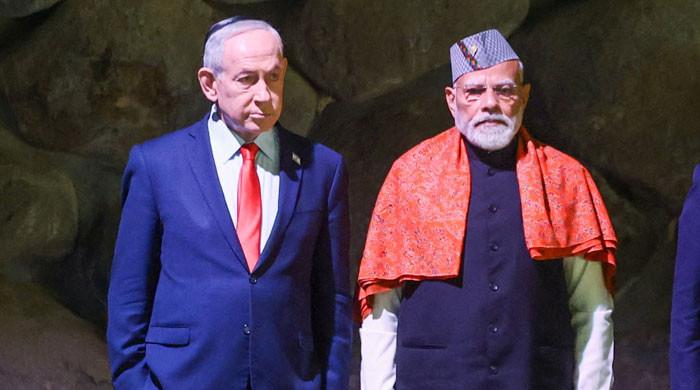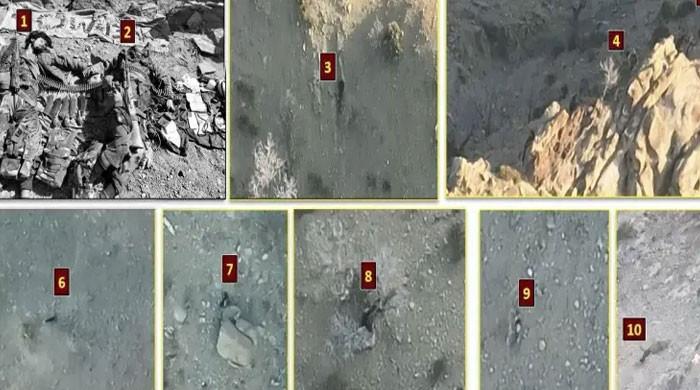Justice Qazi Faez Isa — a brief profile
A look at Justice Isa's contribution over the years to the betterment of the legal structure in Pakistan
June 20, 2020
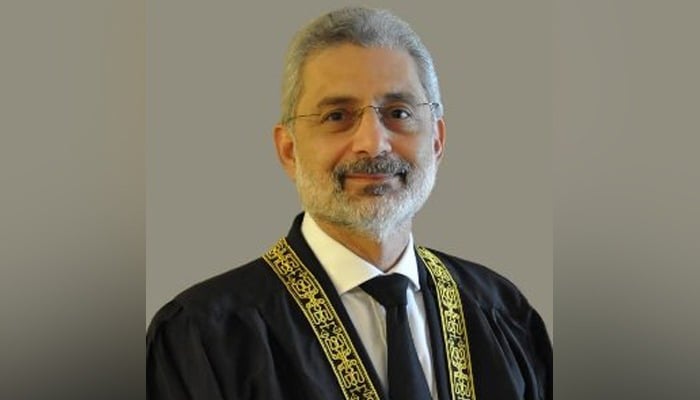
Justice Qazi Faez Isa, of the Supreme Court of Pakistan, took oath as a judge of the apex court in 2014. He is viewed by many to be an uncompromising bastion of justice in the country.
He has always held the principle "no one is above the law" dear and it is one reflected in his work over the years.
Ancestral history
Justice Isa was born on October 26, 1959 in Quetta. He is the son of one of those at the forefront of the Pakistan Movement – the late Qazi Mohammad Isa. He is also the grandson of Qazi Jalaluddin, who was the prime minister of the Kalat state.
His father holds the distinction of being the first from Balochistan to acquire the Bar-at-Law degree. After his return from London, he helped form the All India Muslim League, going on to be nominated as the President of the Provincial League by Quaid-e-Azam himself. He was the only member on the Central Working Committee of the All India Muslim League from Balochistan.
Justice Isa’s mother, Begum Saida Isa, was a committed social worker who was an honorary member of the boards of various hospitals and philanthropic organisations working for betterment in education, children and women’s health issues.
Professional career
According to the Balochistan High Court website, Chief Justice Isa completed his primary and secondary education in Quetta.
He went on to complete his "0" and "A" levels from Karachi Grammar School and went on to do B.A. (Honours) in Law, from London. He appeared for his professional law exam at the Inns of Court School of Law, London, and was called to the Bar of England and Wales (Middle Temple, 1982).
He has practiced law for 27 years in all the high courts, the Federal Shariat Court and the Supreme Court of Pakistan.
Justice Isa is a member of the Balochistan and Sindh high court bar associations and a lifetime member of the Supreme Court Bar Association of Pakistan.
Before he became a judge of the High Court, he was a senior partner at a leading law firm in Pakistan.
“He rendered his services as amicus curiae when called upon by the High Courts and Supreme Court of Pakistan and had also conducted international arbitrations,” stated the Supreme Court on its website.
He has also provided his input to the Security and Exchange Commission of Pakistan and of the Qauid-e-Azam Mazaar Management Board.
Justice Isa has authored many works on the Constitution, Law, Islam and Environment. He has also contributed to The News International on one occasion.
He is a co-author of the “Mass Media Laws and Regulations in Pakistan” and wrote the Report: “Balochistan: Case and Demand”.
Service to Balochistan High Court
When the 2007 emergency was imposed in Pakistan, Justice Isa chose not to appear before “judges who had violated their oath”.
After the emergency was declared as unconstitutional all the judges of the High Court of Balochistan tendered in their resignation and Justice Isa was made Chief Justice of the High Court of Balochistan.
After his appointment as chief justice, he breathed new life into the High Court in Sibi which had been defunct for several years. He acquired land to construct the High Court at Turbat, even approving its design.
He went on to upgrade all the courts in the province, with the aim to facilitate access to the public.
Justice Isa ensured a transparent mechanism for the appointment of officials to the High Court, with each post advertised.
Notable judgments
Justice Isa, in his judgments, has prioritised adherence to the Constitution and the Rule of Law. He has also remained a champion of the public interest.
He was the author of a powerful dissenting note after the 21st Amendment to the Constitution which had effectively enabled the trial of civilians by military courts.
He also struck down sales tax on services imposed on the Civil Aviation Authority, which is a federal authority, by the Sindh legislature.
“Neither the Federation nor the provinces should invade upon the rights of the other nor encroach on the other’s legislative domain”, wrote Justice Isa.
Justice Isa also directed the Sindh government to “ensure complete transparency in the process of selection and appointment respectively” of qualified candidates, as their “performance and work would be far superior to the inept allowed in through the back door of nepotism and/or corruption”. The case was a 2017 suo motu regarding the eligibility of a chairman.
The Sindh Coal Authority was also taken to task on one occasion where it was observed that the Authority and the Special Initiative Department were “implementing and executing projects and schemes worth 105,906,940,000 rupees. A small clique of persons is put in charge of these massive funds, avoiding established methods of checks and balances and circumventing the prescribed manner of implementing and executing of projects/schemes; which is a matter of grave public concern”.
Even NAB was severely reprimanded when it sought to enter a plea bargain with a government official caught red handed with a sum of Rs.699,967,958.
“The acceptance of the plea bargain by the Chairman runs counter to the stated object [of the NAB Ordinance] to ‘eradicate corruption and to hold accountable all those persons accused of such practice’; instead, the message that emanates from NAB is that, if one surrenders only the amount which was seized he will be let off. The rising tide of insidious corruption devastates lives; this Court has repeatedly noted and warned about it, but it seems to no avail”, Justice Isa wrote in his judgment in the Khalid Humayun vs NAB case.
But his verdicts for cases such as the memogate scandal, the Faizabad dharna and the Quetta massacre have established him as an unflinching, and astute observer of the facts in a case.
Memogate scandal
Justice Isa was appointed the head of a task force to probe the Memogate scandal in 2012. The case pertained to a memo which was delivered to a top American official allegedly upon instructions by Hussain Haqqani, who was the ambassador to the US at the time.
The incident, which occurred in 2011, exposed the strained relations between the PPP government and the army.
In his report, Justice Isa had found Haqqani guilty of writing the memo in question and said the former US diplomat “was not loyal to the country”.
Quetta massacre
In 2016, following a suicide attack on Quetta’s Civil Hospital in which 74 souls lost their lives, many of whom were lawyers, a probe commission was formed under Justice Isa.
Justice Isa furnished a report in 56 days and made 18 recommendations.
It was recommended that terrorist organisations be banned immediately with the enforcement of the Anti-Terrorism Act.
"This country was created by those who wanted to ameliorate the condition of the Muslims of the subcontinent and to uphold the freedoms of those of every faith. The message of Unity, Faith, and Discipline was unfortunately sabotaged by hypocrites and extremists and needs to be rejected. The original motto needs to be reclaimed, and in doing so, we will come closer in ensuring that fundamental freedoms are safeguarded," he observed in his final remarks.
Furthermore, he wrote to the families of the deceased lawyers, a letter penned in Urdu, expressing his profound sorrow over the death and paying tribute to their services.
“I wouldn’t have tears enough to shed even if my eyes were waterfalls,” he began by saying.
“The injured and the martyred are and were the defenders of the Constitution and law.
“They represented the downtrodden and those who had been unjustly dealt with. They assisted in the dispensation of justice. They occupy seats next to us filling our pens with their blood," Justice Isa wrote.
“They now look to us in this hour of trial to see whether we too will be able to demonstrate comradeship, be able to love humanity and remain committed and devoted to the law.
“And above all, whether we will be able to deliver justice even more effectively in these circumstances,” he added.
Faizabad dharna judgment
In the Faizabad judgment, he held to account those he deemed responsible for the dharna — from the government, to law enforcers, agencies and the Army's media wing.
The federal, as well as provincial governments were directed to prosecute those advocating hate, extremism and terrorism.
“When institutions stay within their designated constitutional boundaries and there is an effective system of check and balance, citizens stay safe and the state prospers. The trouble starts with self-proclaimed saviours,” reads the judgement.
It reminds the nation that Pakistan was found by “men and women of integrity, sincerity and good manners”. It also quoted the founder of Pakistan as saying he visualised it to be “based on the fundamental principles of democracy, not bureaucracy or autocracy or dictatorship”.




